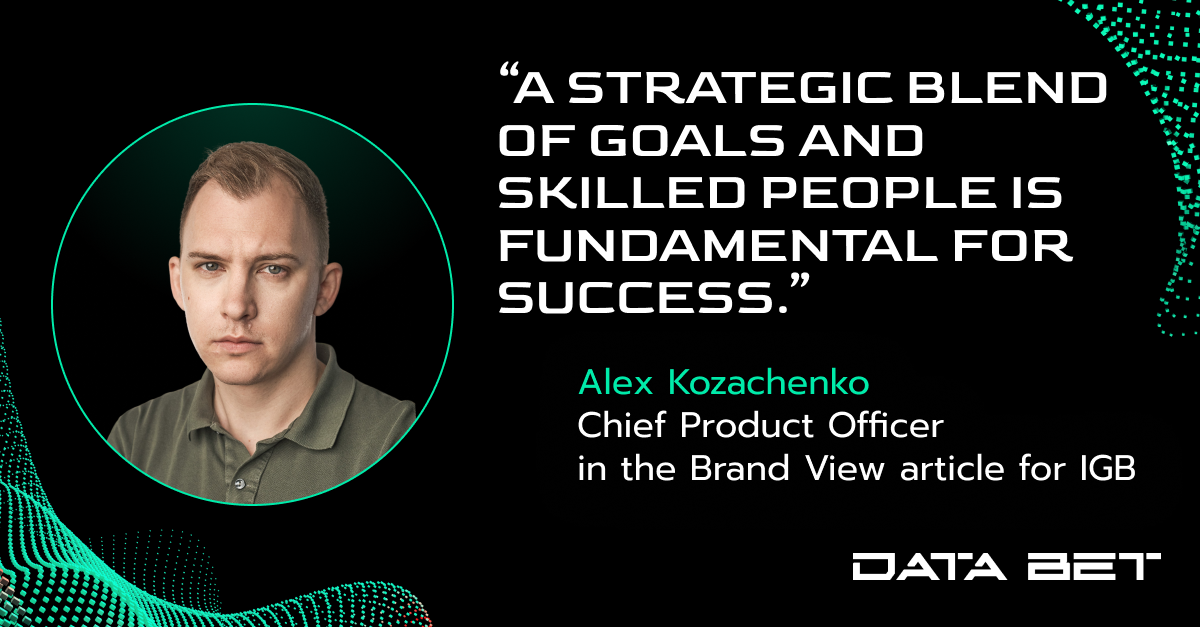An increasing number of operators are acknowledging the significant growth potential of the esports industry. However, successfully integrating this unique vertical into their portfolio is proving to be challenging for many. Alex Kozachenko, Chief Product Officer at DATA.BET, shares his perspective on why esports is on the brink of becoming a mainstay in the gambling industry and provides guidance on how operators can circumvent common stumbling blocks in esports betting.
In recent years, there has been a consistent rise in the popularity of esports, showing no signs of deceleration. Reportedly, forecasts suggest that the global esports market is predicted to generate around $35.56 billion by 2031, a significant rise from the $9.749 billion raised in 2021.
Given these statistics, the potential of esports as a betting product is undeniably significant. But the primary challenge the sector faces is that gambling operators are still struggling to effectively expand their offerings with esports.
Several renowned operators indeed offer esports lines. But when the availability of products like in-play, customized markets, and even bet builders (or their absence) are taken into account, one could argue that esports tends to be deprioritised by many sportsbooks.
Alex notes that several factors could be contributing to this trend. He believes esports is an industry poised for the development of new technologies and, from a gambling perspective, could be the key to attracting new demographics.
Alex further explains that the esports industry is always evolving and garnering attention through a range of innovations and opportunities. He notes that there’s a growing interest in the competitive features of games like MLBB, PUBG Mobile, and Call of Duty, particularly in regions where established games are leading.
This trend indicates that the growth in the esports industry isn’t confined to top esports titles, as demonstrated through the increasing use of advanced technologies enhancing the quality and quantity of content delivery. High-profile games like Counter-Strike 2, Alex says, are good examples of how game developers have utilized new opportunities to expand their creativity, resulting in highly realistic gaming environments.
Identifying the obstacles in creating an esports strategy
Despite the promising prospects for innovation, developing a robust esports offering necessitates careful planning. Alex warns that several obstacles may stand in the way of operators, the first being that esports requires a completely different approach than ‘traditional’ sports.
“Too often, bookmakers either fail to address the needs of their target audience or struggle to accurately communicate the value of the product and positioning. This misalignment becomes apparent when operators invest heavily in esports, only to realize that their audience prefers conventional sports, which leads to an incorrect product fit and consequent operator losses,” he says.
Enhanced risk management practices
A good trading team comprised of traders, risk managers, controllers, and supervisors is crucial, ” especially for operators looking to gain a competitive edge, by enabling them to maintain and improve the quality of odds”.
Monitoring player behaviour
One effective way for operators to optimize the risk management process is through the integration of technologies like artificial intelligence (AI). In addition to assisting with risk management, AI can help monitor player behaviour and game dynamics, providing valuable insights for making more informed decisions.
“Traders’ understanding of player behaviour nuances and game dynamics enhances decision-making, ultimately providing a competitive advantage in the fast-paced esports environment and significantly contributing to the operator’s overall success.”
Capitalising on high-quality data
Despite the challenges, Alex believes that one of the biggest obstacles lies in the access to quality data. The esports industry has an abundance of data available, but not all of it is useful, and using poor-quality data can lead to long-term issues.
Building a sustainable product through licensed content
Alex explains that licensed content is beneficial for building a more sustainable betting product, reducing integrity threats, and cultivating trust within the platform. ” More than just a wide range of esports and tournaments, it’s about ensuring 24/7 coverage, constant content availability, and giving players the flexibility to place bets at any time”.
Developing for the future: DATA.BET’s new and innovative product plans
Alex reveals that DATA.BET is currently in the process of launching an innovative multi-competitive LIVE feature that allows players to place live bets on games with multiple competitors. “Our plans also include enhancing our product functionalities, introducing new Scoreboards and Pitch Tracker widgets to maximize profits and offer a more comprehensive platform for our clients”, he concludes.
Alex Kozachenko, Chief Product Officer at DATA.BET
